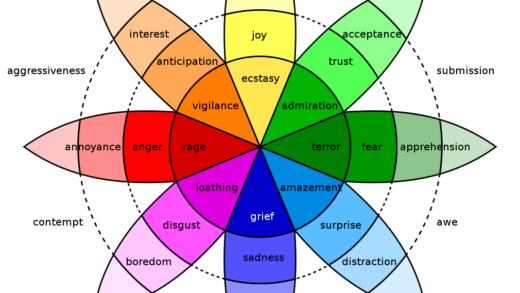There was a boy who was an incredibly fast walker and no one knew this better than his girlfriend who’d frequently ask him to slow down. Yet time and again, she’d fall behind, but what kept her from growing agitated was the fact that the boy would raise a hand and silently say ‘I love you‘ in ASL as he marched ahead…

What she didn’t know until long after they broke up, was the boy didn’t know ASL and was pantomiming Spider-Man’s Thwip — effectively his rude, nerd equivalent of telling her to hurry up.

The point of this story is, when we see what we want to see, we’re less likely to investigate further. And, at the risk of sounding like someone who’s had one too many bad relationships in the past, all I’ll say is the best SEOs I know are as suspicious of their significant other sneaking out every night as they are when they randomly come home with a box of chocolates and flowers.
So what does this have to do with SEO? Same as the title:
Investigate Positive Results Like They’re Negative Results
Look, I’ve worked agency life, so I get it. When the first of the month rolls around, you’ve got several deliverables for a handful of different clients alongside your recurring digital hygiene of emails, slack and meetings. So sprinkle on a little ad hoc dumpster fire, a critical team member OOO, and a Direct Report asking to meet in the morning only to immediately turn off the camera and start sobbing and suddenly, rather than shooting for an A, you’re opting for a pass/fail grading curve this week.

So, when you’re faced with a monthly report and things look positive… it’s easy to to slop together a report, and buy yourself another 30 days before you need to think about it again.
It happens because it’s a quick fix to this week’s problem, but “this week’s problem” is a Sisyphean problem — in that, next week, you’re going to have “the same, but different” problem. And that’s because reactive problems require proactive solutions.

But this is genuinely to you and your clientele’s benefit. To better illustrate this, let’s talk about how SEOs tend to handle negative results.
- SEO observes the “SEO button” isn’t working.
- SEO investigates…
- implementation on the site;
- organic channel: keyword rankings and largest traffic driving pages;
- other channels: trends or campaign interference;
- off-site factors: world events, Google algorithm updates, social trends, etc.
- Once SEO identifies — or educated guesses — the issue, SEO creates a new strategy to address the organic channel’s poor performance.
- SEO creates a deck w/
- Exec Summary: Findings
- Methodology
- Data showing existing performance
- Data showing support for planned approach
- Next steps based on the data
Even if a client is livid, most SEOs will come out ahead if they handle negative results this way because this is how you demonstrate accountability. You may have done everything right, but it’s not working. And instead of a “trust me, bro” an accountable SEO will say, “this didn’t work, here’s how we know, here’s what we’re going to do and why we believe it will work.”
I still firmly believe in the elementary school adage: show your work. Usually once people see the amount of effort involved, they’re going to defer to you anyway — I think about this every time H&R Block or Bench.co releases a “How To” article; meticulously designed so your eyes glaze over and you think, “yep, I’m gonna let you take this one.”
Using the client’s data, you’re showing your work, it brokers trust and it’s especially compelling when you’re the one bringing it to the client’s attention. In short, DON’T HIDE THE SECRET SAUCE.
Now the same logic applies to positive results. If you follow the same format:
- SEO observes the “SEO button” is working.
- SEO investigates…
- implementation on the site;
- organic channel: keyword rankings and largest traffic driving pages;
- other channels: trends or campaign interference;
- off-site factors: world events, Google algorithm updates, social trends, etc.
- Once SEO identifies — or educated guesses — the result, SEO reinforces the strategy to scale positive performance to more areas of the site.
- SEO creates a deck w/
- Exec Summary: Findings
- Methodology
- Data showing existing performance
- Data showing support for planned approach
- Next steps based on the data
Cus here’s the thing: SEOs are real good at making more work to do.

There’s a reason the SEO mantra is a confident — not a tepid — “it depends.” Not only will one thing work for one site in one industry and not another, but it takes ten minutes on any Google Webmaster Hangout to find out Googlebot will power through regardless of your optimizations (or lack thereof).
Is it best practice to have one H1? Sure. Will Googlebot literally, hit a second H1, pack up its fellow spiders and not return to your site until you get it resolved? Absolutely not.
Take alt text as an example. Alt text is an SEO signal — it’s also necessary for ADA compliance which is a much more compelling argument for businesses, but I digress. Alt text on an ecommerce site like eBay or Etsy is INFINITELY MORE VALUABLE than alt text on a SaaS site. Why? Let’s compare the two:
This alt text tells me everything I need to know:

^really the “Pre Owned” tells me everything I need to know.
Now compare it to this alt text:

I’m willing to bet the former paints a pretty clear picture of what you’ll get on-site vs the flowery, apocryphal marketing messaging of the latter.
Alt text may be a “signal” but depending on the industry and site, determines if it’s a stronger or weaker signal. That’s why they’re “signals”, not “mandates”.

Which is what brings me to my next point.
Best Practices are a Compass, not the Navigator
“A compass, I learned when I was surveying, it’ll point you true north from where you’re standing, but it’s got no advice about the swamps, deserts and chasms that you’ll encounter along the way. If in pursuit of your destination, you plunge ahead heedless of obstacles, and achieve nothing more than to sink in a swamp… what’s the use of knowing true north?”
-[Abraham Lincoln] as portrayed by Daniel DeLewis
You can basically swap “compass” for “best practice” and “swamps, deserts, and chasms” for “CMS, dev resources, and internal politics” and you get the idea.
So technical SEO is important? What’s it matter if the only resource available to your client is a blogger? Are you going to hound them to learn how to login and use plugins in WordPress or focus on content?
Or better yet, say you want to change the content of an local automotive dealer’s site, but as it turns out, it’s the OEM’s mandate that all automotive dealers present the site the same way, with the same rules and the same content and all you have access to is a local GBP listing. Are you going to spend your 6mo contract clawing your way up the rotary telephone chain of command to the ear of the OEM CEO and try to convince them to allow you to alter how they’ve been handling all websites since 1999?
OR are you going to see how you make a GBP listing work for you.

To be blunt, if an SEO’s reasoning for doing something is “it’s the best practice,” that’s an inexperienced coward’s way of being passive aggressive. That’s effectively saying, if you (the client) disagree with what I’m saying, then you’re not disagreeing with me, you’re disagreeing with a whole network of experts who agree on this thing.
Do you agree on the best practice?
If you don’t know if the best practice will work on the client’s site, then propose it as a test. You don’t know if it’ll work, but you’re not seeing better options and there’s some data to suggest the “best practice” could work. That’s fine, you have your true north, now circumnavigate the swamp.
Narrow your scope and use less dev resources to act on it. If it works, broaden the scope. If it doesn’t, try on a different section or move on. Be the navigator, don’t keep pointing North and simply expect to get there.
And meanwhile, if you believe in the best practice, then why are you mentioning the best practice!? You should be telling the client to do the thing because you believe, based on your experience and their data, that it’s the best course to take.

So either you believe it and it’s your opinion or you’re skeptical of it and want to test it. Both are acceptable, both will earn you the trust of the client, and in neither scenario will “it’s best practice” serve as an acceptable answer.
Good, Bad? Always Be Testing
Given that Google’s had a massive leak and the experts still don’t definitively know what works on which sites, you should always have a testing mentality. Moreover, SEO is a moving target — I can’t be the only one who lived through rewriting meta descriptions to match the 320 char count for each individual product in a global ecom site… only to rewrite these 8 months later.
@ me, cus we have a support group.
The point is you should lead with curiosity and always be skeptical of what’s “always worked.” SERPs are rented space, never owned.
Ralph Waldo EmersonA foolish consistency is the hobgoblin of little minds… With consistency a great soul has simply nothing to do… Speak what you think now in hard words, and to-morrow speak what to-morrow thinks in hard words again, though it contradict every thing you said to-day. — ‘Ah, so you shall be sure to be misunderstood.’ — Is it so bad, then, to be misunderstood? Pythagoras was misunderstood, and Socrates, and Jesus, and Luther, and Copernicus, and Galileo, and Newton, and every pure and wise spirit that ever took flesh. To be great is to be misunderstood.
And look, I’m well aware we’re not saving babies (or souls?). I mean I embrace being the Jane to the stand users’ Tarzan, but it means something that even Jesus said, “Be the Christ, not the Christian.”

Not knowing what’s going to work is okay so long as you set that expectation. This is true whether your client is new or a seasoned SEO. Stress test the site. Optimize what you can, but keep returning to the data until you see what’s working.
Cus once you find out what works, then suddenly you’re not working on 5 other deliverables next month. Instead the client wants you to ditch 4 of those, so you can make the thing that’s working, WORK MORE.



